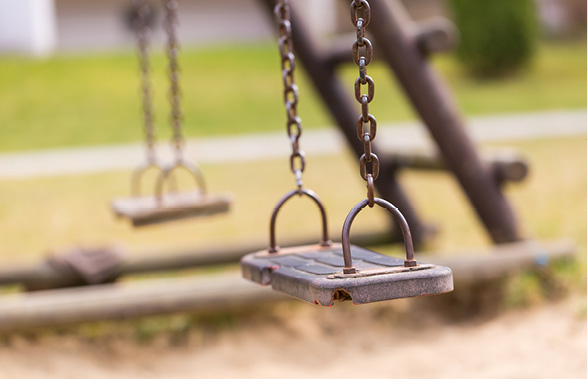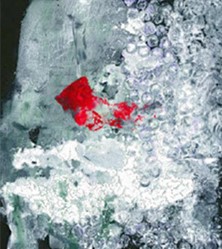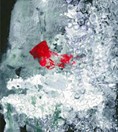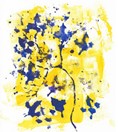What to do when a child dies
When your child dies, there are lots of things you have to do and organize. Although it’s hard, it’s helpful to make some plans before your child dies. Here are some things to think about before the death, immediately after the death, and days or weeks later.

Learn from the healthcare team
Your healthcare team will give you some idea about when the end of your child’s life will come, although no one knows for sure. They can tell you about signs that death is coming closer and how you will know when your child has died. If you wish, they can help you to find ways to say good-bye. You may want to think about whether or not you want to be involved in caring for your child’s body after your child dies. If you do, talk to the team. They will remove medical equipment like IV lines and dressings. You might want to wash the body and choose clothes.
Your healthcare team will talk to you about documents you might need, including:
- No CPR (cardiopulmonary resuscitation) order. When a child’s death is nearing and the medical team has determined that there’s nothing they can do to prevent it, they may recommend a No CPR order. This is sometimes called a Do Not Resuscitate (DNR) or Allow Natural Death (AND) order. This order will be placed in your child’s medical chart in hospital or your doctor will give you a copy to take home. It tells other healthcare providers that if your child’s heart stops or if they stop breathing, trying to restore these things will not be helpful and may cause your child to be uncomfortable. A No CPR does not mean that your healthcare team will stop giving other types of care, such as treatments aimed at helping your child live longer or stay as comfortable as possible.
- Letter of anticipated death. In some places in Canada, the coroner will investigate a death at home unless it is clear that the death was expected. Your doctor and members of your homecare team can write a letter stating that the death is expected or anticipated. A copy may be sent to the medical examiner and the funeral home. Although it is very difficult to think about planning your child’s funeral, it can be helpful to make some plans ahead of time.
Your doctors may ask you to think about things that would need to occur in the hours following your child’s death. However, these things do not need to be decided in advance.
- Autopsy. Your doctors may ask if you would like an autopsy on your child’s body or they may seek your permission for one. An autopsy is an examination of a body after death. It can help families and doctors learn more about an illness or about the cause of death. You don’t have to give your permission, unless an autopsy is required by law. Autopsies are required if the death was unexpected or suspicious. This isn’t usually true if your child had a serious illness. You may want to request an autopsy if you have questions about your child’s illness or death.
- Organ and tissue donation. You may wish to donate organs or tissues after your child dies. It can be comforting to know that your child helped save someone else’s life. Not every child is eligible to donate organs or tissue for transplants to help other patients. Your healthcare team can help you find out if your child can be a donor. Even if they cannot donate to help other patients directly it may be possible to donate for research or education in order to help many patients indirectly. Donating organs or tissues for any purpose is a very personal choice, and something that is never required.
Read more
A funeral or memorial service is a way to remember and honour your child with your family and community. It may be helpful to make some plans before your child dies. If you do, you may reduce some of the pressure and stress of trying to organize an event that honours your child during the very difficult time right after their death. You may wish to involve your child in making choices about how they want to be remembered. You don’t have to plan all the details, and you may feel differently and change some of your plans after the death occurs. That’s okay. However, it can help to make some choices about:
- Funeral home
- Funeral services (burial, cremation, casket, urn)
- Type of funeral or memorial service (religious, celebration of life, small or large)
- Location of the service (place of worship, funeral home, community hall)
- Time of the service (immediately, later)
- Leader of the service (spiritual leader, funeral home director, family member)
- Participants in the service (family members, friends)
- Reception after the service
- Death notice or obituary (for newspaper, social media, or funeral home website)
- People to notify about the death
Death in the hospital or hospice
If your child dies in the hospital or in a hospice, the healthcare team will be there to help you. A member of the team will certify your child’s death. Generally, there is no rush to do anything immediately after someone dies. You are encouraged to spend as much time as you wish with your child. Your nurses will remove medical equipment and dressings. Tell your healthcare team if you wish to take part in caring for the body. When your family is ready, the body will be moved to the morgue until funeral plans have been made. If you have already made funeral plans or if your religious customs require after death care to happen quickly, your child’s body may be picked up directly from the room in which they died.
Death at home
Your healthcare team will help you develop a plan so that you know what to do and who to call after your child dies. When your child dies, call your doctor or ask a healthcare provider to call. The doctor will come to certify the death. Notify the funeral home that the death has happened and tell them when you want them to come. You may take as much time as you like to be with your child. However, after 4 to 6 hours, it’s important to find a way to keep the body cool. When you are ready, the funeral home will come and take the body.
If the death is unexpected, call emergency services. Be aware that the police may come with the ambulance. If you do not have a “No CPR” order or a “letter of anticipated death”, the paramedics may try to resuscitate your child. They may transfer your child to the emergency department to have the death certified. It’s important to ask the emergency services providers to speak to a member of your healthcare team by telephone.
“Tyler’s older sister was away in Germany. I didn’t call her to tell her he passed away because I couldn’t imagine putting her in position to fly home alone knowing her brother passed away. As much as it’s important to deliver the news and let people know, I think there are times where it’s okay to wait a little bit.” – Darren, father of Tyler
- Notify friends and family about the death. Ask a friend or family member to help make calls or send notices.
- Get copies of the death certificate from the funeral home.
- Hold a funeral or memorial service. Work with your funeral director or spiritual leader.
- Return equipment and take unused medicine to a pharmacy. Your healthcare team, friends or family members may be able to help.
- Notify organizations about the death. A friend or family member may be able make some calls. Some organizations will want to speak to a parent or guardian. Contact:
-
- Hospital clinics (to cancel outstanding appointments)
- Family doctor
- School
- Community pharmacy
- Home care manager, who will notify visiting homecare teams
- Clubs, teams
- Insurance companies
- Health insurance (government and private)
- Government benefits plans such as Employment Insurance, Canada Child Benefit
- If your child was a newborn:
-
- Apply for a birth certificate. The government requires this even if your baby dies.
- Apply for pregnancy leave. Your employer or a social worker can usually help.
- If your child was older, close or cancel:
-
- Bank accounts and credit cards
- Telephone plan
- Email and social media accounts
- Drivers’ license
- Social insurance number
- Care for yourself:
-
- Take time to mourn your child
- Rest
- Eat healthy meals
- Ask for and accept help from others
- Surround yourself with caring and supportive people.
- Everything feels awful, but see if you can find one thing that makes life feel just a tiny bit less awful for even one moment.
Resources
- Considerations for a home death - Canadian Virtual Hospice
- Preparing for the End - SickKids












